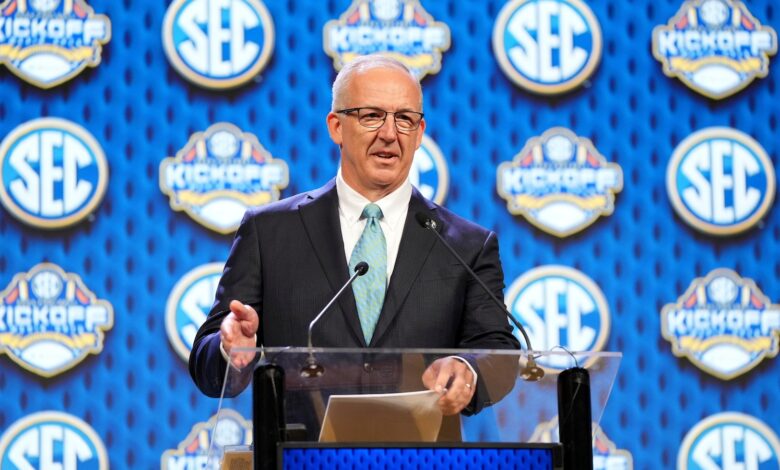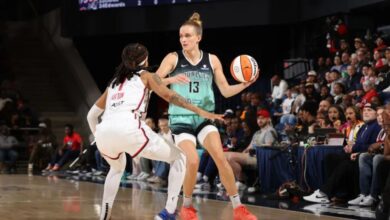College sports lurches forward, hoping to find a level playing field with fewer lawsuits

The landscape of college sports is rapidly evolving with the introduction of name, image, and likeness (NIL) payments for players. As the rules surrounding these payments become more complex, the need for a governing body to enforce and regulate them has never been more crucial.
Enter the College Sports Commission, a newly established organization tasked with overseeing the financial aspects of college athletics. With the goal of ensuring a level playing field for all athletes, the CSC will determine what constitutes a fair market deal for players and work to prevent legal disputes from arising.
One of the primary responsibilities of the CSC will be to monitor the expenditures of schools on athletes, ensuring that they adhere to the $20.5 million cap set for the first year of the new NIL arrangement. This task is not without its challenges, as universities may seek to gain an advantage through creative accounting practices.
To enhance transparency and accountability, the CSC will also evaluate third-party NIL deals through a clearinghouse called “NIL Go.” This process aims to determine the fair value of endorsements and other services provided by athletes, with the goal of preventing exploitation and unfair compensation.
However, navigating the complexities of NIL deals is no easy feat, as evidenced by the revelation that a significant number of third-party deals would have been denied by the clearinghouse. Disputes over the valuation of these deals are likely to arise, potentially leading to legal challenges and court battles.
In an effort to streamline the process and create a uniform set of rules, the CSC is urging schools from major conferences to pledge their commitment to the new regulations. This collective agreement is essential for maintaining consistency and avoiding discrepancies between state laws governing NIL payments.
As the college sports landscape continues to evolve, the role of the CSC in enforcing rules and promoting fairness will be crucial. By establishing clear guidelines and protocols, the commission aims to create a sustainable and equitable system for athletes, schools, and third-party entities involved in NIL arrangements.
Ultimately, the success of the CSC will hinge on its ability to adapt to the ever-changing dynamics of college sports and navigate the legal challenges that may arise. With a focus on transparency, accountability, and fairness, the commission is poised to shape the future of college athletics in the era of NIL payments.





